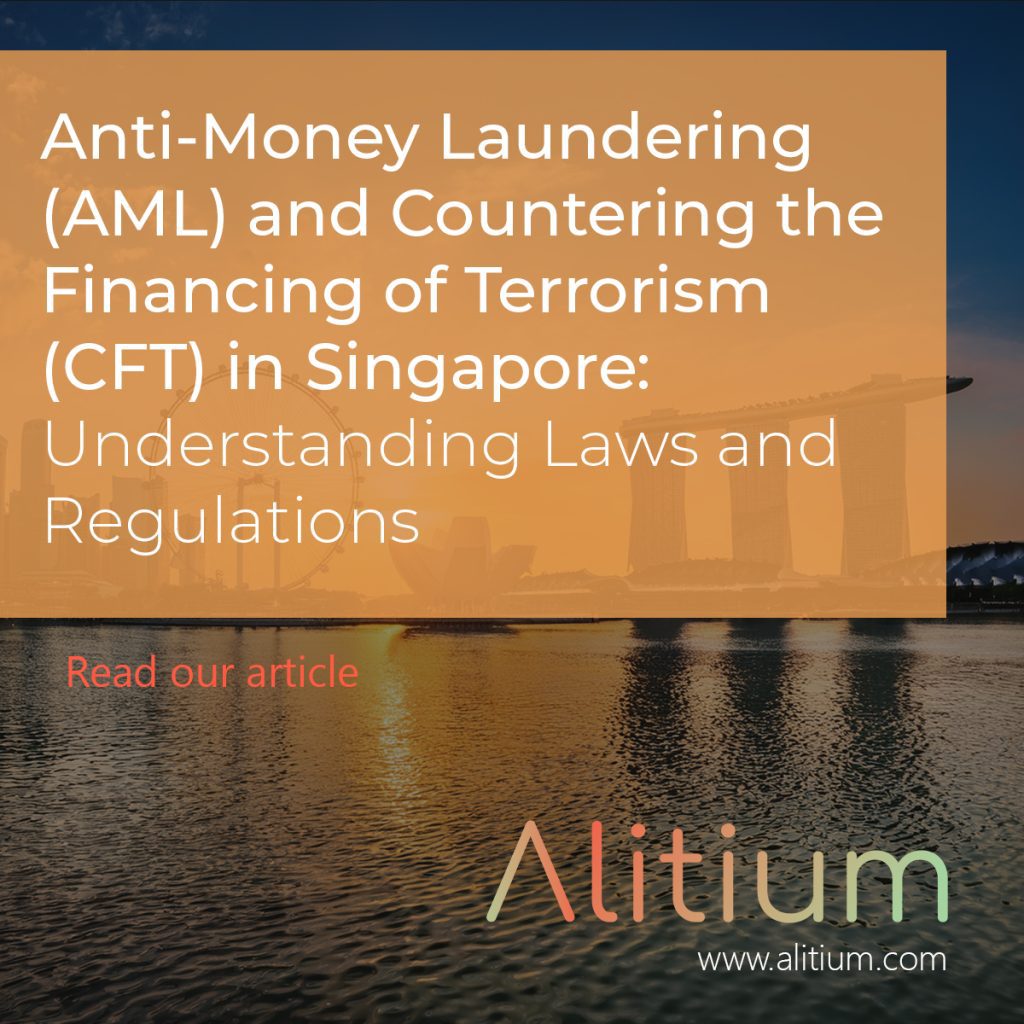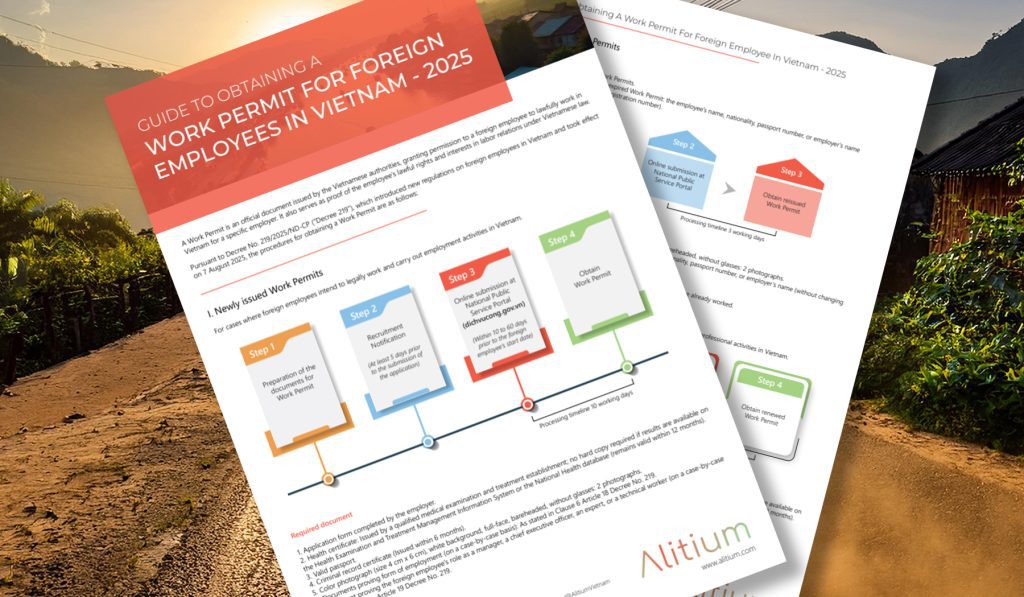Can you avoid or protect against Vietnamese taxation on transfers of capital in offshore structures which invest in underlying Vietnamese companies?
Like many jurisdictions, Vietnamese taxation authorities apply the “look through” approach to transactions of offshore structures with underlying Vietnamese subsidiaries or assets. That is, the ownership transfer of an offshore entity will be treated as a Vietnamese domestic transaction for capital gains tax purposes where there are significant underlying Vietnamese assets owned by the offshore entity being transferred.
But, what does this mean in practice, and what are the implications (and roadblocks) for M&A deals as a result of this?
The Scenario
A common scenario for investing in Vietnam is that a holding company is first established in a tax and treasury friendly jurisdiction. Singapore and Hong Kong are commonly used, as neither apply capital gains tax on transfers of equity in companies, as a generally rule.
This new offshore holding company (“HoldCo”) then acquires or establishes a Vietnamese incorporated entity, which it owns 100% of, and which will operate in its chosen sector in Vietnam (“OpCo”). This offshore HoldCo and onshore OpCo structure provides a number of benefits for investors, including:
- Ability to effectively manage the HoldCo share register, classes of shares, rights, etc, all without seeking approvals from Vietnamese authorities before any changes can be implemented to ownership, rights or structures.
- Shareholders of HoldCo can have shareholder agreements that provide additional rights or requirements (ie, drag or tag-alongs), which may be difficult to implement or enforce in Vietnam’s legal system.
- Treasury flexibility, whereby HoldCo may raise funds through loans, and inject into Vietnam as a mix of (share) capital and loans, bypassing loan restrictions and limitations.
When it comes to transfer shares at the HoldCo level, given the majority of assets in this scenario relate to the underlying Vietnamese assets of OpCo, tax considerations need to be taken into account, regardless of the fact that the actual transfer at HoldCo level may not be subject to capital gains taxes in its home jurisdiction.
Mechanism for Vietnamese taxation on offshore transactions
Vietnamese tax authorities seek to impose Vietnamese taxation on indirect (offshore) disposals involving underlying Vietnamese assets, therefore it is important to consider that Vietnamese tax may arise when offshore transactions occur. Certain transactions may be specifically subject to provisions within Double Tax Agreements, so these should also be referred to in respect of specific transactions.
Current Vietnamese tax laws have general references that Vietnamese taxation can apply to entities incorporated outside Vietnam and without a permanent establishment in Vietnam, but where income arises connected with Vietnam, including capital gains on disposal of assets. Decree 12/ND-CP/2015, issued 12 February 2015, seeks to provide a more specific basis for Vietnamese tax authorities to tax the transfer of offshore disposals through an indirect disposal of Vietnamese assets, with a more specific reference to transfer of capital for foreign entities doing business in Vietnam.
Notwithstanding, the provisions and technical basis for implementing taxes on offshore disposals are not fully clear, nor explained in practice, and there is conjecture with authorities and advisors on how to apply (or consider application of) tax in these scenarios. For example, where an offshore disposal occurs and only part of the consideration is related to Vietnamese assets, does Vietnamese tax apply and how?
Should it be determined that an indirect disposal is subject to domestic capital gains tax, or a selling party wishes to self-declare such tax, there remains a lack of consistent direction from tax authorities providing guidance on how to specifically determine both the date and calculation of the resulting tax. As a consequence, the common approach is that the declaring party follows the same mechanism/approach as for domestic transfers, which provides a 10 day deadline for paying taxation liabilities from the date of transfer.
There may be reasonable arguments that certain indirect transfers are not subject to domestic capital gains tax, and with the quite broad and general statements in laws and decrees (without underlying specific guidance and interpretation) about when and how capital gains tax applies to offshore transfers, it arises in practice that voluntary disclosures are commonly not made in Vietnam when these indirect transfers arise, unless otherwise required by the acquiring party.
The authorities do challenge indirect transfers and seek to apply capital gains tax when they become aware of transactions (commonly via media and publicised events), where they conduct tax inspections and identify changes, and where significant changes are made to the Vietnamese entities Enterprise Registration Certificate and Investment Registration Certificate due to change in control and individuals appointed.
M&A Negotiations – The Tax Trap
When negotiating a Sale and Purchase Agreement (“SPA”) for an M&A deal, there are always competing expectations for tax matters. The transaction parties generally seek to minimise tax and minimise risk, however these ideals do conflict.
It is not surprisingly common, using the scenario referred to earlier, that the sellers of HoldCo seek to minimise their taxation, and may not wish to voluntarily declare their disposal of offshore capital (with underlying ownership of a Vietnamese entity). As a result, where tax authorities in Vietnam are not aware of the transaction that has proceeded, Vietnamese taxation can’t later be directly be pursued against a non-resident seller (noting that they have further powers against other parties, discussed below).
The buyer on the other hand does not want future taxation risks, and seeks to structure the SPA and transaction documents to include, for example, representations and warranties that the seller has completed all taxation obligations, with appropriate remedies against the seller for non-completion/compliance. One of the key issues here (assuming the offshore advisers are aware of the Vietnamese taxation risks) is that if the tax authorities later discover the transaction and deem underlying capital gains tax is applicable the offshore transfer by the seller, it will be OpCo (as the resident taxpayer – assuming seller was non-tax resident) that bears the assessed tax and penalties for late declaration and payment.
For the seller’s perspective, they often do not want to trigger and pay additional underlying Vietnamese tax on a transaction that is fundamentally one being conducted in another jurisdiction, and given that the Vietnamese tax authorities may be unlikely to discover and assess the transactions, it can become an unnecessary or avoidable transaction cost (in their mind).
However, a well-informed buyer will obviously insist that potentially underlying tax is voluntarily reported, as the future liability and tax costs will be placed upon the ongoing Vietnamese OpCo.
Post Transaction Disputes
A further common complications arise in M&A transactions, post completion, which can result in disputes and litigation.
An example would be where generic tax obligation/commitment clauses are used in M&A contracts/SPA (ie, there is no specific reference to potential underlying Vietnamese tax arising), and the matter is not specifically addressed before closing. Post closing, where the buyer seeks to ensure that representations and warranties, along with other transaction obligations, have been met, including tax compliance matters, Vietnamese tax is raised.
If the buyer, seeking to reduce future penalties, discloses the transaction to the Vietnamese tax authorities, are they in breach of the deal terms? Can the seller be forced to voluntarily disclose and pay tax to the Vietnamese tax authorities? What do the representations and warranties specifically cover with the potential underlying Vietnamese tax and the obligations of the parties? Is there claw back or ability to recover additional costs under the transaction documents for future assessed tax liabilities (for either party)?
This has resulted in complicated and costly litigation for transactions, and parties do need to be aware. But, if buyers and sellers are not Vietnamese tax resident, and transactions duly conducted and negotiated outside of Vietnam, it commonly ignored in the negotiation and documentation process with the transaction.
One further complication is that as there is not a clear interpretation and implementation of capital gains tax arising due to underlying transfers of foreign entities, different taxation authorities may treat the process, and the tax determination, quite differently. Authorities may require different documents from another, treat market value determination differently, and take significant time to undertake the complexities of what is a completely foreign transaction undertaken under foreign laws. Given that there is a 10 day requirement from transaction date to submit and pay taxation on the transaction, it gets complicated. Simply determining transaction values, where there are payments in tranches dependent on specific events or obligations, cause significant concerns in negotiating taxes arising.
Future changes are in the works
Recent releases of a Draft revising Vietnam’s Law on Taxation have been issued for comments, and the draft is likely to be adopted by the Vietnam National Assembly in the near future. This draft law specifically refines and has reference to the concept of taxing the foreign entities on Vietnam-sourced income. The current laws does not specifically do this, and hence the new law seeks to provide a more solid basis for the taxation scenarios that have been discussed above.
The draft law will strengthen the position of the Vietnamese tax authorities in terms of taxing the
foreign entities from indirect shares transfer transaction, and if implemented we would expect to see further guidance for practical compliance issued by the tax authorities issued promptly. It is clear that Vietnamese authorities are aware of the significant number of offshore transactions with underlying Vietnamese transactions that are not currently taxed, and this will provide further tools to address this.
One additional component of the draft is the recommendation that ownership transfers of capital are taxed on a turnover basis (in this case, 2% of transaction value) versus the current profits/capital gains basis. This may also result in further issues where transactions and for no market-based gain will be subject to taxes.
Extra Tip – Unintended Group Restructuring Dilemma
Internationally, internal group restructures are common, and which may include rollover relief in home countries/other jurisdictions where ownership of underlying entities across the globe are moved around. On the surface, the change of ownership of an asset does not have any tax implications to the group as there is no change in beneficial ownership and they have sought tax rollover relief or deferral where the companies are incorporated or tax-domiciled.
But, any restructure that results in an underlying transfer of Vietnamese assets, and given there is essentially no rollover relief provisions in Vietnam (in respect to foreign transactions), there is an exposure to onshore tax arising for group restructures. A group restructure may result in Vietnamese tax for capital gains on the transfer of underlying ownership of a Vietnamese company, despite other actions taken.
Further to this, even if agreed internal values used as part of the documentation and submitted to the Vietnamese tax authorities, the tax authorities have provisions to contest values deem a higher market value for purposes of the tax arising on the (restructure) transaction.
Matthew Lourey is Chairman & Advisor at Alitium, with 20 years experience in Vietnam assisting foreign investors navigate and maintain compliance in market. Contact Matthew via Alitium.com for further assistance and advice.








